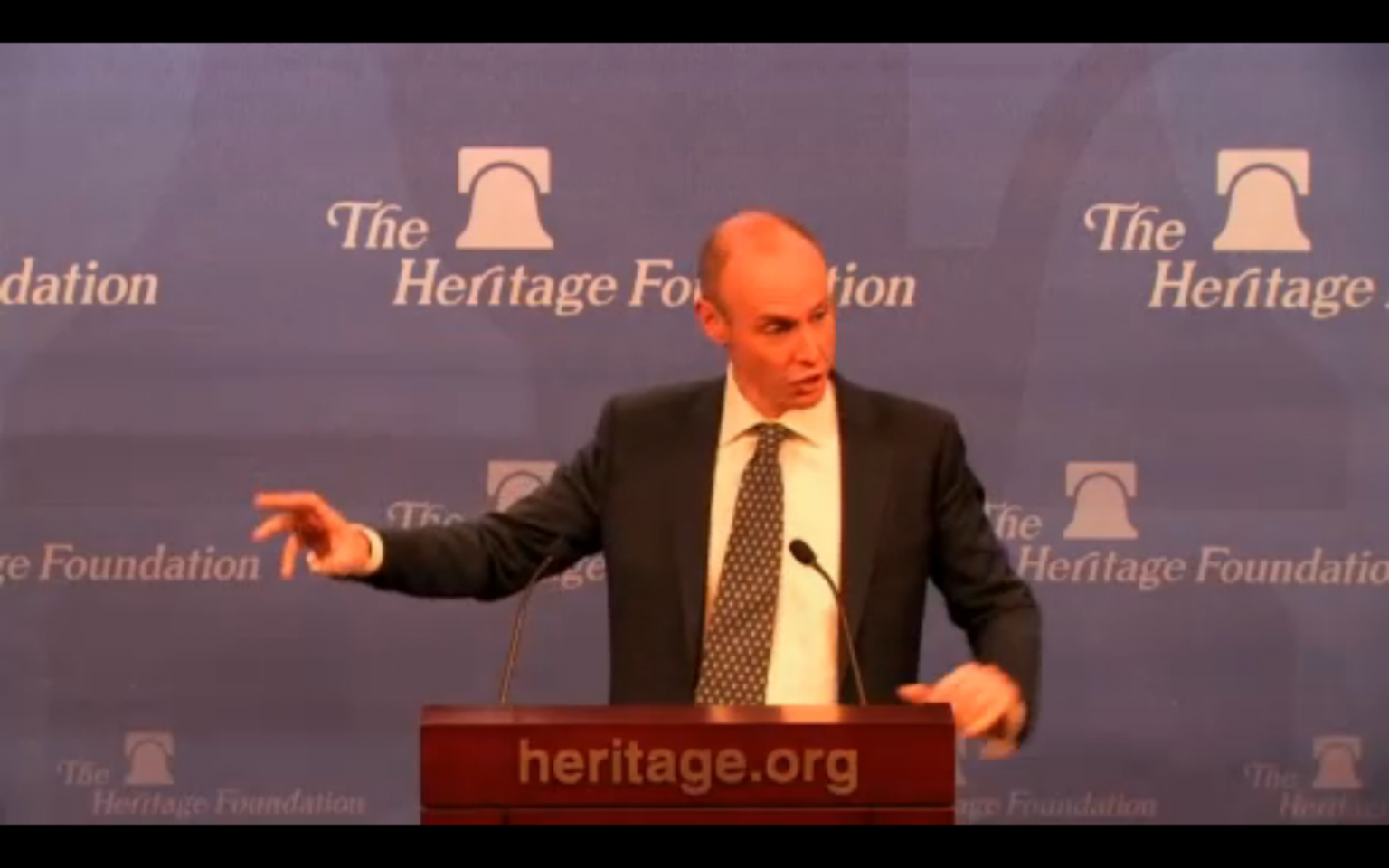“Spoiled millennials” and “global regulation” imposed by NGOs stand in the way of agreeing a bilateral US–UK trade deal, Brexit campaigner and climate science denier MEP Daniel Hannan told US think tank the Heritage Foundation this week. Otherwise it would “take only five minutes” to agree and be done in “less than 500 words”, he claimed.
The neocon Heritage Foundation is known for opposing climate action and environmental regulations, and increasingly finds itself at the centre of president-elect Donald Trump’s transition team. It has also long courted top Brexit campaigners.
Speaking at the think tank’s offices in Washington D.C., Hannan, a Conservative Party Member of the European Parliament, told the audience “If it’s good enough on your side of the Atlantic it’s good enough on ours”, adding that “in reality of course the deal is unlikely to be done just by Heritage and me”, drawing laughter from the crowd.
“Our state machines will get their hands into it and they of course will try to make it about everything except trade. They’ll make it about ecological standards, and women’s rights, and child labour, and everything except the free exchange of goods and services, and that’s what opens the door to the corporate capture”, he said.
Negotiating a unique trade deal between the UK and US remains a top priority for Brexit Britain. But the path forward is not clear.
In October, the EU conceded that the EU–US Transatlantic Trade and Investment Partnership (TTIP) will not be passed during Obama’s final months as president.
While there are merits to negotiating trade deals, recent mega-deals like TTIP have sought to reduce “barriers to trade” – in other words, “harmonising” regulations between all parties which raises concerns that there will be a race to the bottom, with important regulations related to health and the environment watered down.
Among the criticisms of TTIP is that it is disconnected from the urgency of climate change and the Paris Agreement, and that it will allow for lax regulations, loopholes, and an easier flow of trade in fossil fuels, particularly shale gas from the US.
But even deals like TTIP were too regulation-heavy according to Hannan:
“The difficulty with trying to get something with so many countries involved is that it became a very slow process that all the NGOs then started getting involved with [it] … we rarely notice the globalization of NGOs, the extent to which they have learned to use these deals to try and impose global regulation, and that was making it fairly difficult for conservatives to support, and a lot of conservatives in this building were open in their hostility, they argued that TTIP was more harm than good.”
And while he admitted that “public opinion is lukewarm when it comes to commercial liberalization”, he argued that the “idealistic people, well-meaning altruistic young people” don’t understand the reality of free trade.
On the outcome of EU referendum, the US election and the implications for trade deals, Hannan said: “There are some crybabies on both sides of the Atlantic who don’t accept the verdict of the people as final … it’s the slightly spoiled millennials, the generation of the safe spaces and micro-agressions … it was entirely in their minds about ‘am I a nice cosmopolitan, outwards-looking person, or am I an evil bigot?’”
However, it is this generation that voted overwhelmingly for Hillary Clinton in November and which will have to endure the impacts of Brexit the longest.
Establishing a ‘simple’ free trade deal is a key issue for think tanks such as the Heritage Foundation, which sits at the nexus between the network of pro-Brexit Climate Deniers operating out of 55 Tufton Street in Westminster and the new Trump administration.
Despite Donald Trump’s campaign rhetoric indicating a more isolationist approach, positions within the president-elect’s transition team are increasingly being filled with those affiliated with the Heritage Foundation.
And that is creating opportunities for UK politicians with an anti-climate action agenda.
As DeSmog UK recently revealed, just weeks after being appointed Britain’s International Trade Secretary in July, Liam Fox met with the Heritage Foundation to discuss a potential trade deal between the two countries during his first trip to the United States.
The Department for International Trade has since refused to answer a question from Labour’s Shadow Trade, Energy, and Climate Secretary, Barry Gardiner, on whether the issue of climate change was discussed during this meeting.
When asked by Gardiner “what steps he [Fox] plans to take to ensure that all future trade and investment deals are consistent with the UK‘s international obligations to tackle climate change?”, the department responded that more information would be provided in the coming months.
It added: “While we remain members of the EU, the UK will participate constructively in EU decision making on trade issues, including on environmental provisions within trade agreements.”
What happens once Britain leaves the EU is less clear.
Subscribe to our newsletter
Stay up to date with DeSmog news and alerts







